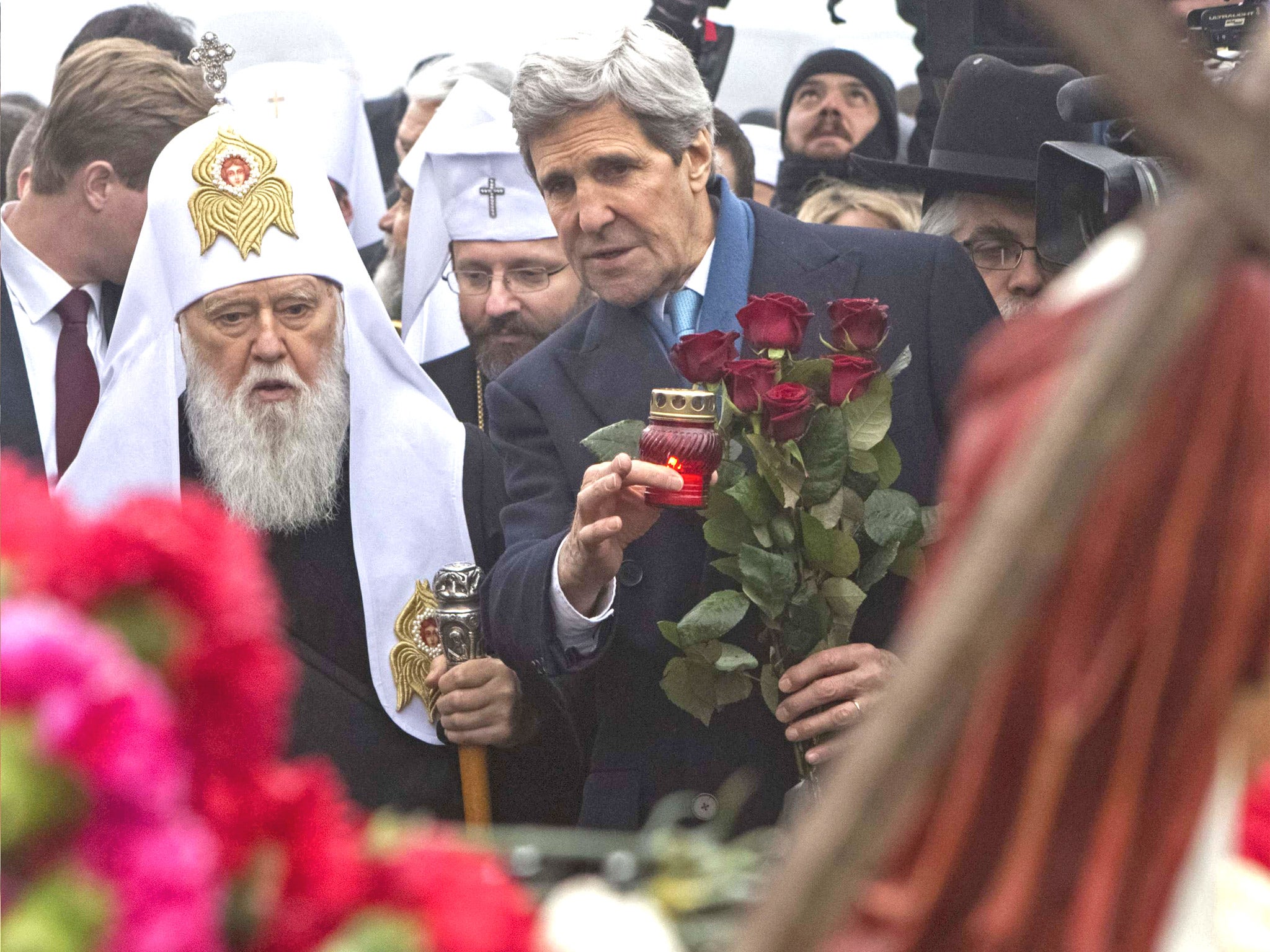Ukraine crisis: US threatens Russia with political, diplomatic and economic isolation over troops in Crimea

The US Secretary of State, John Kerry, threatened new measures to isolate Moscow “politically, diplomatically and economically” as he denounced the Russian leadership for an “act of aggression” over the deployment of troops on Ukrainian soil.
During a visit to Kiev, he gave full backing to the new government in Ukraine and indicated that Washington could give the country $1bn in emergency aid to ease the impact of a financial crisis threatening it.
David Cameron echoed the American warning, saying Russia’s failure to respect its neighbour’s territorial integrity and sovereignty was unacceptable and further military action would be met by “further steps” from the international community.
Amid the crisis, Russia test-fired a Topol intercontinental ballistic missile, hitting a target in another former Soviet state, Kazakhstan, on a range leased by Moscow. Washington reacted calmly, saying the launch was “routine” and that the US had been notified in advance.
In pictures: The crisis in Ukraine
Show all 15But the tensions between Washington and Moscow were put under fresh strain as President Barack Obama and Mr Kerry made fresh accusations against President Vladimir Putin.
Mr Obama acknowledged that Russia had legitimate interests in Ukraine but said that did not give Mr Putin the right to intervene militarily. “President Putin seems to have a different set of lawyers making a different set of interpretations,” he said. “But I don’t think that’s fooling anybody.”
And Mr Kerry accused Mr Putin of looking for an excuse for fresh incursions into Ukrainian territory. In a symbolic display of support, he visited Independence Square in Kiev to lay flowers in memory of the victims of last month’s violence before holding talks with newly installed ministers.
Mr Kerry warned that the US and its allies are ready to step up measures to isolate Russia unless it ordered its troops back to their barracks. He added: “I think it is clear Russia has been working hard to create a pretext for being able to invade further. Russia has talked about Russian-speaking minority citizens who are under siege… They’re not. It is not appropriate to invade a country and dictate what you want to achieve at the end of the barrel of a gun.”
Mr Kerry praised the restraint of the Kiev government, saying it had “acted remarkably responsibly by urging total calm, by not wanting to have any provocation”.
Acting at Ukraine’s request, the US and a number of other nations formed a military observer mission, which will monitor the Crimea region. A US official said the team planned to leave within 24 hours.
The US is also to send technical experts to Ukraine to advise its central bank and finance ministry and will help train observers for the country’s 25 May elections.
Mr Kerry said Russia should abide by the 1997 agreement, which grants it a naval base in the Crimean port of Sebastapol but bars it from deploying troops outside this base.
Although there is little outward sign of the Russian leader softening his position, sources in London insisted dialogue was continuing with Moscow over the stand-off. Moscow has agreed to attend today’s extraordinary meeting of the Nato-Russia Council to discuss the Ukraine crisis.
European Union leaders will travel to Brussels tomorrow where they will agree a common demand for the Russians to withdraw their troops from Crimea and open talks with the new administration in Kiev.
In a statement to MPs, William Hague, the Foreign Secretary, echoed Mr Kerry by dismissing Russia’s excuses for military action in Ukraine as “baseless”.
Mr Hague said the crisis posed “a threat to hard-won peace and security in Europe” and made clear he had no doubt the troops in Crimea were acting on Moscow’s orders, despite Mr Putin’s insistence they were “local self-defence forces”.
Subscribe to Independent Premium to bookmark this article
Want to bookmark your favourite articles and stories to read or reference later? Start your Independent Premium subscription today.

Join our commenting forum
Join thought-provoking conversations, follow other Independent readers and see their replies